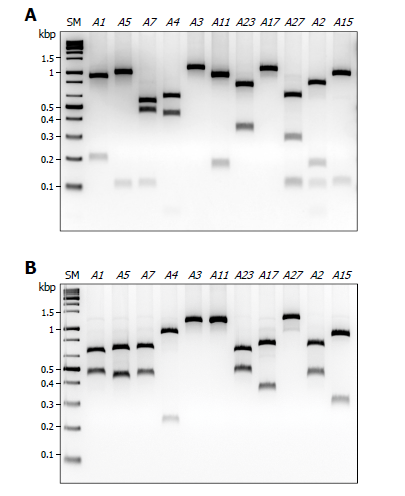Abstract
Figures & Tables

Fig. 1.Electrophoresis profiles of individual A mating type alleles after digestion with III (A) and RI (B).SM, size marker.
Mi-Jeong Park1 Rhim Ryoo1,* Yeongseon Jang1 Kang-Hyeon Ka1
1Division of Special Forest Products, Department of Forest Bioresources, National Institute of Forest Science, Suwon 16631, Korea

Fig. 1.Electrophoresis profiles of individual A mating type alleles after digestion with III (A) and RI (B).SM, size marker.